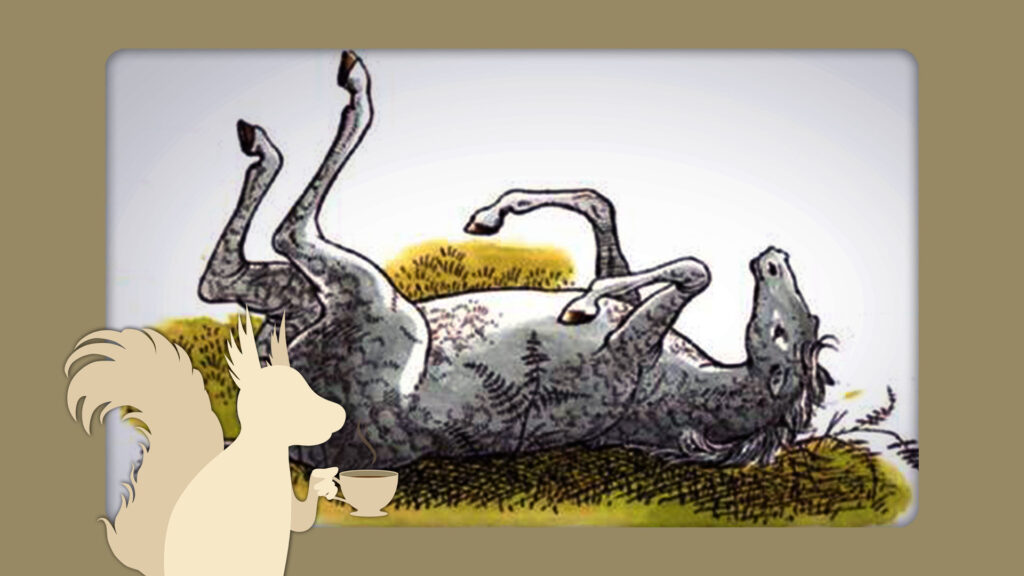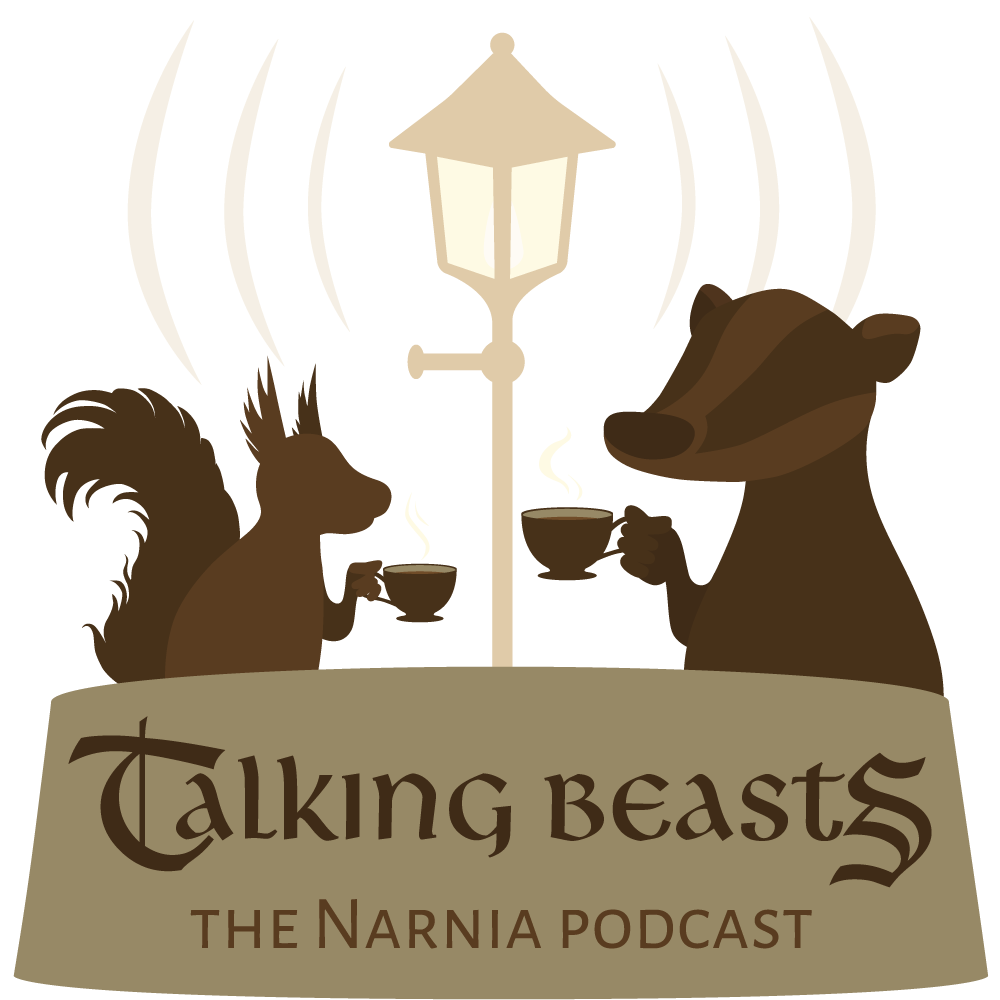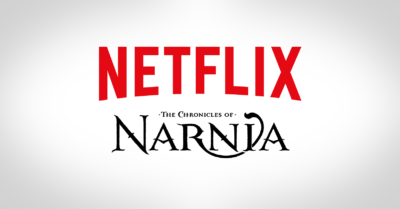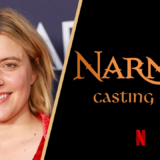The Humiliation of Bree and Rabadash | Talking Beasts

Podcast Discussion: The Horse and His Boy, Ch. 14-15
In the final chapter of The Horse and His Boy, both heroes and villains reach their low point. Bree even reconsiders going to Narnia after coming all that way.
Listen to our discussion below and post a comment.
And join our new Narnia Facebook group!

Listen:
Podcast: Play in new window | Embed






I personally never thought of the coda in HHB as sappy, mawkish or even sentimental. It’s a proper ending to the story told. If anything, it’s not evocative enough: It’s pretty restrained, rather than the emotional high lots of readers might hope for too much: We want to know more about what happens to the characters, but we get the bare minimum.
Also about Rabadash, my first thought when reading he turned into a donkey: “I WANNA GO HOME TO MY MAMA!” Ouch, Lewis. He probably never saw Pinocchio or expected guy readers to be spooked by it. But playing it off for humor and having the good characters laugh at Rabadash was tantamount to mean-spiritedness in my opinion. Even if it’s justified.
So I never liked that scene as a child.
I agree, though it never reminded me of Pinocchio (mostly cuz I saw it just once and didn’t really like it, then forgot all about it). It was definitely on the mean side, but was not my biggest problem with this book in particular.
What I don’t like about the scene with Rabadash is that it seems to suggest that worshiping another god is okay. I think it’s kind of bizarre that Aslan set it up so he had to stay close to the temple of Tash – kind of like that scene in LB when a “good” Calormen soldier discovers that his sincere worship of Tash was actually of Aslan, misplaced though it was. In the short-term it makes sense – if he goes too far from the temple, he turns back into a donkey, so he can never attack Narnia again, and hopefully will learn a thing or two. And of course, he would eventually become a Tisroc (cuz that guy won’t live forever), so it’s good that he learn these tough lessons. But in the big picture of things, I just feel like it weakens the message a bit. But that’s just one geek’s opinion, and I could be way out in left field on that.
But getting back to the humility part, I just love the character of Bree. I’ve been through some storms and overcome some challenges in my life (as we all have), and I’ve also accomplished some great things, all thanks to the Lord of course. But those experiences can make it easy to think we’re more than what we are. Bree thinks he’s a brave war horse, but he’s just a horse; lions scare the manure out of him, and he just loves a good roll in the grass. I can relate to that (though not quite so literally lol). I’ve had to learn a few hard lessons like him too. Although he is a talking horse, from the magical world of Narnia, he is a very “real” character, and my absolute favorite in that book.
But you’re right – he doesn’t get turned into a talking donkey, and I find that so fascinating! What a powerful bit of symbolism, a lot more subtle than most things in LWW but still awesome! Who would have thought that a long-time fan like me could still learn something new from Narnia. 🙂
I was totally satisfied with the ending. I love that Cor and Aravis ended up together, I love that Bree got home to Narnia, I love the plot twists and character arcs and the whole thing. Yes, it’s true that it doesn’t feel like Narnia until the end – but that makes the ending that much cooler! It starts out in a country that is foreign, both to Narnians and to readers, and there is no magical transport between our world and theirs, no story of ordinary kids who find themselves in an extraordinary adventure, just this poor Shasta kid and a Narnian horse. Sure there are *references* to the stories we know and love, but it doesn’t really seem to fit the stories we know and love… until the end! In the end, we get Aslan, the four Pevensies, and so much more. Even the “Rabadash the Ridiculous” stuff is just great! It just occurred to me to think about this: how would his people react when he came back as a donkey? Who could ever take him seriously again? I mean it’s so comical that I’d almost consider it to be the funniest moment in all of Narnia! And yes, I would have loved to see more of Bree’s better life in Narnia and Shasta’s in Archenland, to really make it feel like a “happily ever after” – but it WAS a happy ending. Sure it was kinda sappy, but in a good way. Writing this makes me want to read the story again! 🙂
But as much as I love it, I would be shocked if they do HHB at all! Just the nature of the Calormen culture is reason enough that I could see them skipping it altogether. I wish he hadn’t made them dark-skinned, simply because except for a few characters, Calormen is always the enemy; it’s also not cool because half the people who would read/watch look just like the “bad guys”. Throw in the facts that they worship a false god, wear turbans and live near a desert, and it seems like there are also some Muslim stereotypes in there. All this will get Lewis pegged as a racist and an Islamophobe and a blah blah blah which he is not, and no company would want to be involved in that. People today could learn from Rabadash; they are so easily offended, so quick to get angry, that I just don’t know if this story will ever be what we want it to be apart from the book. I hope I’m super-wrong but I’m afraid I may be right.
PS: Just subscribed to the podcast! Thanks to Glumpuddle, Rillian, Dot and the rest for all the great Narnia content!
PS2: I love your nicknames on here! I stuck to my usual online “avatar” or whatever, so I can link it to my blog (which sometimes goes into Narnia stuff) but you guys did it up right! “Daughter of the King”, “The Rose Tree Dryad”, etc. are all super-cool and very Narnian nicknames! Now I kinda wish I could do the same (definitely something referencing Reepicheep cuz he’s my all-time favorite). 🙂
Thanks to you both for sharing your thoughts about this book with us!
I have a couple comments that I noted down during the episode today.
I once heard a quote from filmmaker: “Writing a television show is like writing a story with no ending.” If you think about it, it is true. In a serialised story – which is one with an ongoing storyline and subplots – the writers need to keep the viewer interested. The hope is that the viewer will tune in next week, or stay subscribed to Netflix. TV writers don’t usually write endings. So I get what you mean when you say that it is difficult for a good quality series final to be written.
On the topic of a potential screen romance between Aravis and Shasta, I never had this thought before until you mentioned it. However upon reflection, I have an opinion. If the filmmakers decide to tell us that they got married, they will add in a romance plotline. This is the best way to make the marriage make sense. If they do not have the romance, but then say “then they got married”, it will probably feel very out of place in the context of a movie. Having said that, if HHB was a series, then perhaps they could hint at the idea of romance in the final few scenes of the storyline, and then show them getting married in a flash-forward. In Walden’s PC, I didn’t even pick up on the Susan/Caspian romance until the kiss at the end. Upon further viewings, I notice the development of the romance, but I think it is poorly written and poorly acted. So IMHO the execution of any romance/hints in HHB would be paramount.
I agree that Narniaweb makes me feel like I’m not alone in this. After the poor response to the final two Walden films, it would be very easy to fall into the trap of thinking that Narnia is sidelined by the public and has no fanbase. Narniaweb and similar sites make me have a group of similar-minded fans to connect with! Thanks to all for being a part of it : ) … (too sappy? :P)
As a side note, I love the extra stories of Archenland which are told. They make the world seem so big, and the stories are enchantingly wild and enthralling.
You wrote: “And of course, he would eventually become a Tisroc (cuz that guy won’t live forever)”
haha! That’s a great reference! What a keen mind you have.
On that note about nicknames, on this site it is indeed possible to use a nickname which is just for this site, and still link to your own website with your URL. Hope that helps!
It’s interesting that some people find the scene with Rabadash unpleasant. I find it hilarious. But then I grew up reading fairy tales which are full of villains who get punished in magical ways like having toads and vipers come out of their mouths whenever they talk. You can’t say being turned into a donkey is worse than that.
Along similar lines, I’ve heard a lot of people say they find the children’s fantasy, Charlie and the Chocolate Factory, a book which really captures the nature of the reward/punishment folktale, really creepy but I always found it to be a lark. I didn’t like any of the characters who had bad things happen to them in that story. They annoyed me and I relished reading about them getting their deserts. Apparently, I just have a sick sense of humor. LOL.
I think that’s why I’m not that into television even though a lot of people say television is better written than movies nowadays. (Well, if the truth be told, I’m not into movies either. I usually only see one if it’s based on a book I like.) And why I’m not thrilled about Narnia being adapted into a TV series. I mean if it’s a comedy, I enjoy the story going on forever and imagining the characters having wacky misadventures for the rest of their lives. But if it’s a drama, I find it annoying after a while. I feel like it’s really hard to find that sweet spot of just-long-enough-and-not-too-long for a TV show. Either they get cut off before the story can be finished or they go on until after the story really needs to end.
As much as I’d love to see Shasta and Aravis’ wedding, I’d rather they didn’t mentioned them getting married than have an explicit romance develop between them throughout the story. It would require rewriting their characters too much for my taste. Even if they don’t clarify that they got married eventually, I’m sure some people watching (who don’t know the book’s story) will imagine they do of their own accord. 😉
This is why I tend to not watch most American tv shows anymore. I might watch a season or 2, but, I will grow gradually tired of them and stop watching. This is the reason why I like foreign tv shows better that end after 1 season, they know what they are doing because they aren’t trying to continue the show.
About Shasta and Aravis, I want to see their wedding but, I am very frightened that they will decide that Aravis needs to be in the battle like they did in the Australian stage play, that was mentioned on Narniaweb. If they do not do that, I wouldn’t mind a kiss after Shasta came back from battle, as long as that is the real first instance of plot change and they do not really drag the romance into the plot. Instead, I wish that they would develop the romance by how comfortable Shasta and Aravis are with each other, or something rather than interrupting the plot to have a romance subplot.
I find it really cool that Lewis discussed the principles of constitutional government within a children’s fantasy book. Until today I never made a connection between the whole ” kings aren’t above the law” thing and the themes of humility contained in this story.
I would actually have no problem with cutting the donkey bit out of the movie, for the reasons you mentioned. I want a faithful adaptation, but not one that seems forced or slavishly faithful. It’s an awkward scene to dramatize (especially with the ear-wiggling stuff) so I’d rather not see an attempt at it.
The book ending left me way more satisfied than I initially expected to be, mainly because I wasn’t really excited about reading a book that at first didn’t have anything very Narnian about it (apparently I wasn’t alone on that). I would have liked to see Peter though, even though I’d have to agree that his absence makes the story feel a bit more real.
I didn’t mind not having a cameo for Peter in the book (though it’s odd he doesn’t have one when the Pevensies do, I guess) because I think he’s an overhyped character. I mean he’s the High King and everyone admires him but there’s only one scene (the fight with the wolf) told from his point of view. His most memorable acts of good leadership involve delegating authority (like having Edmund fight Trumpkin and Susan have an archery contest with him) and his main talent seems to be sword fighting which most of the books’ (male) heroes can do anyway. He’s probably the most boring protagonist in Narnia.
(I’m sorry if this comment sounds like character assassination. I thought I should be specific about my reasons for not being attached to Peter since I don’t expect a lot of people in the comment section to agree with me.)
It seems a bit harsh when Aslan confined Rabadash to not travel more than ten miles from his location or he would be turned back into donkey permanently. But he could have avoided that punishment by giving up his arrogance and simply accepting the mercy of the good kings. I guess he did live in confinement since we don’t know anything further about how he spent the rest of his life. I thought Rabadash was just an arrogant fool who deserved what he got, but maybe we could forgive him for Aslan’s sake. Shakespeare did the same thing to Bottom in A Midsummer Night’s Dream, although that was a character who wasn’t nearly as nasty as Rabadash. 🙂
One thing they could do if they want to have Rabadash’s comeuppance make pacing sense in a movie would be to have Aslan appear and turn him into a donkey immediately after the battle. If they did that though, they’d probably cut all the dialogue leading up to it which would be almost as bad as cutting the whole thing. Anyway, I love that Rabadash is punished specifically by being humiliated. If he’d been killed or imprisoned, I think he would have proud of that weirdly. Being an object of the ridicule was the worst thing for him.
Looking back, I think my favorite character in this book is Aravis. That’s kind of weird when you think about it because on paper she’s a totally cliché character. I mean she’s a young noblewoman who prefers “guy stuff” to the ladylike things her culture expects young women to excel at. She runs away from home because her parents (including a wicked stepmother) want her to marry a gross old rich guy. She falls in with a poor boy whom she initially looks down on but comes to like after he saves her life. The poor boy turns out to be a long lost heir. She marries him and becomes queen. It sounds like totally stock characterization/plotting and yet I really love this character. It just goes to show that either clichés become clichés because they basically work or that they can work when approached from an interesting angle.
I know I’ve carped about this analysis taking too slowly in this comments section. But in case it wasn’t clear, that’s because I love it. You guys did a great job analyzing both the literary devices Lewis used to write the book and the themes which make the story meaningful. I’m so glad I can listen to whole thing now. Thank you.
Yes! A podcast episode focused on the narrator would be awesome. In my opinion the narrator is the most underrated character in the Chronicles. I love the conversational tone, and the way he often reminds you that you’re reading a story, and that the person telling it is just a guy who heard it from the characters themselves. Somehow the casualness grounds the stories, and allows for the world-building to extend beyond what appears in the books, leading to that richness of adventure and mystery we find so intriguing.
I need to reread this one